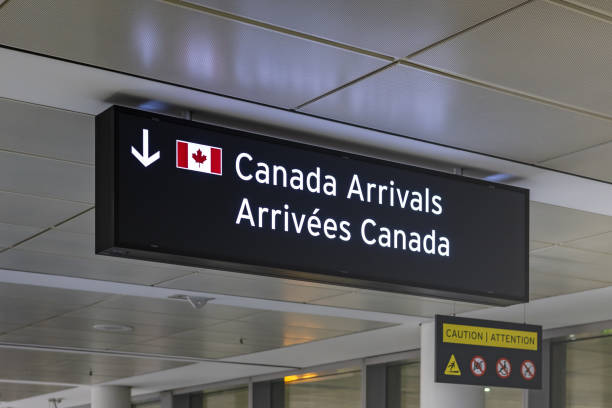Poland is becoming one of Europe’s rising stars for skilled migration. With rapid economic growth, a booming tech and manufacturing sector, and labor shortages in key industries, the country is actively recruiting foreign professionals. Salaries for specialized roles can reach up to $77,000 USD annually, making Poland an attractive option for international job seekers.
This guide explains why Poland is offering these high-paying jobs, which careers qualify, and how you can legally move, live, and work in Poland through visa sponsorship and government-backed work permits.
1. Why Is Poland Paying Foreign Workers Up to $77,000?
Poland’s economy has consistently grown over the past decade. Now a manufacturing and tech hub in Central Europe, it is home to many multinational companies including Google, Amazon, LG, Bosch, and Samsung. The demand for engineers, developers, and healthcare workers has outpaced supply, especially as younger Poles move to Western Europe for higher wages.
To stay competitive and sustain growth, the Polish government is encouraging companies to hire foreign workers, offering streamlined visa processes and competitive salaries for high-skill professionals.
2. High-Paying Jobs in Poland for Foreign Workers
Jobs that offer salaries up to $77,000 USD per year (approx. 260,000 Polish złoty) are usually in technical, IT, or medical sectors:
IT and Technology
- Software developers (Java, .NET, Python)
- Cloud engineers and DevOps specialists
- AI and machine learning experts
Engineering
- Electrical and mechanical engineers
- Construction engineers
- Project managers
See Why Mexico Is Paying Foreign Workers Up to $69,000 – Apply Now!
Manufacturing and Logistics
- Production line supervisors
- Quality control engineers
- Warehouse operations managers
Healthcare
- Registered nurses
- General practitioners
- Medical laboratory staff
Business Services
- Accountants and auditors
- HR and recruitment consultants (multilingual)
- Business analysts with international experience
3. Work Visa Options for Foreign Nationals
To work in Poland legally, foreign nationals need one of the following:
National Visa (Type D) for Work
- Valid for up to 1 year
- Tied to employer
- Requires job offer and work permit
Temporary Residence and Work Permit
- Issued after entering on a visa
- Valid up to 3 years
- Can be extended
Blue Card EU (for highly qualified professionals)
- Requires a job offer with salary 50% higher than the national average
- Fast-track to permanent residency
Employers typically apply for the Work Permit before you apply for the visa.
4. Requirements to Qualify
To qualify for a work visa or permit in Poland:
- Have a valid employment contract
- Submit educational and professional certificates
- Provide a clean criminal record
- Pass a medical exam (if required)
- Have proof of accommodation in Poland
- Demonstrate sufficient financial means (or employer sponsorship)
In most cases, the employer handles much of the paperwork for the permit.
5. Where to Find Sponsored Jobs in Poland
These platforms often list jobs for foreigners and include visa sponsorship opportunities:
- Pracuj.pl
- No Fluff Jobs
- LinkedIn Poland
- EURES Portal
- Multinational company career pages (e.g., IBM, Capgemini, Philips, Amazon)
Use keywords like “visa sponsorship”, “Blue Card”, or “foreigners welcome” when searching.
6. Step-by-Step Guide to Working in Poland
Step 1: Apply for a Job
Submit your CV and cover letter tailored for the Polish market. Include experience, qualifications, and availability to relocate.
Step 2: Receive a Job Offer and Permit Application
Your employer applies for a work permit through the Voivodeship Office. Once approved, you’ll receive a decision letter.
Step 3: Apply for a National Visa
Submit your application at the nearest Polish consulate or embassy. Include passport, permit decision, insurance, accommodation details.
Step 4: Enter Poland and Register Residence
Within 4 days of arrival, register your address at the local town hall. Start your job and apply for a Temporary Residence Card if staying longer.
7. Salary Expectations and Living Costs in Poland
Salaries vary by region and sector. In large cities like Warsaw or Kraków, high-skilled professionals often earn up to or above $77,000 USD per year.
Monthly Cost Breakdown (Approx. in USD):
| Expense | Cost (USD) |
|---|---|
| Rent (1BR apartment in Warsaw) | $600 – $1,000 |
| Utilities and Internet | $100 – $150 |
| Food and Groceries | $200 – $400 |
| Public Transport | $25 – $50 |
| Health Insurance | $50 – $100 |
Poland remains one of Europe’s more affordable countries, allowing for savings and a high quality of life even with modest salaries.
8. Advantages of Working in Poland
- Competitive salaries in IT, engineering, and healthcare
- EU residence and mobility benefits
- Fast-track pathways to permanent residency
- Family reunification policies
- Access to affordable healthcare and education
- Multicultural work environments
Poland is part of the Schengen Area, meaning visa holders can travel freely across most of Europe.
9. Challenges and How to Overcome Them
Language Barrier – Polish is not required for all jobs, but basic knowledge helps. Many multinational offices operate in English.
Legal Complexity – Visa and residency steps can be bureaucratic. Use a certified immigration advisor if needed.
Cultural Adjustment – Be open to local customs, and connect with expat communities in cities like Warsaw, Wrocław, and Gdańsk.
10. Mistakes to Avoid
- Accepting offers from unlicensed employers
- Applying without a proper work permit
- Not registering your address within 4 days of arrival
- Overstaying your visa or missing renewals
- Not learning basic Polish for daily life
Final Conclusion
Poland offers strong professional opportunities, high-paying jobs in key sectors, and a realistic pathway for foreign workers looking to build a career in Europe. With salaries up to $77,000 USD, combined with affordable living costs and a stable economy, it’s a destination worth considering for skilled migrants.
Prepare early, find a trusted employer, and ensure you understand the full process—and you could begin your successful European career journey in the heart of Central Europe.









